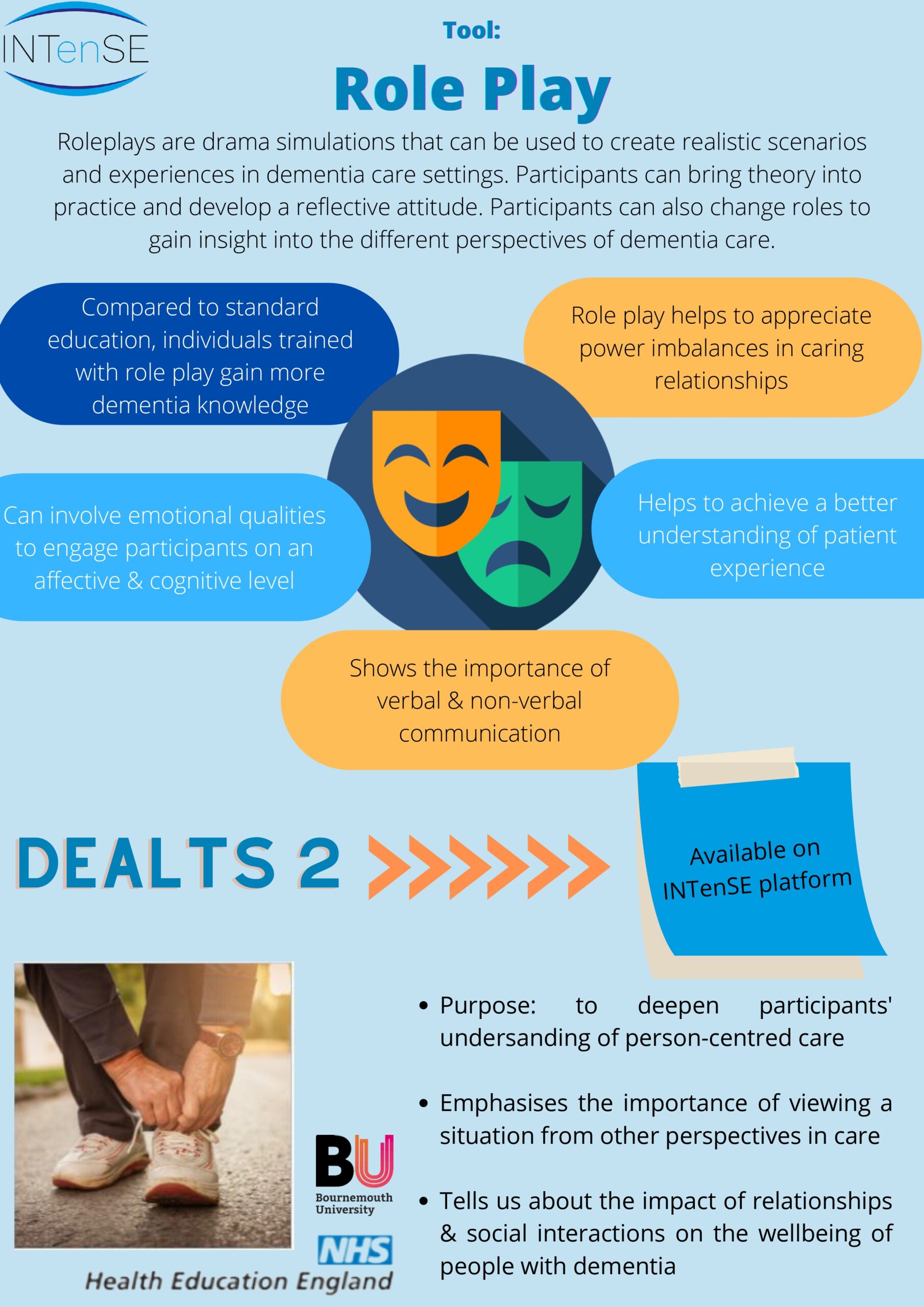Roleplays are drama simulations that can be used to create realistic scenarios and experiences in dementia care settings. Participants can bring theory into practice and develop a reflective attitude. Participants can also change roles to gain insight into the different perspectives of dementia care.

Examples of role play simulations can be found in the Dementia Education and Learning Through Simulation 2 (DEALTS 2) programme
The ‘person centred cared simulation exercise’ in an example of a role play available in the DEALTS 2
Useful demos can be found here: https://www.hee.nhs.uk/our-work/dementia-awareness/dementia-education-learning-through-simulation-2
[Video taken from the source linked before]
The premise of roleplays is that participants are divided into separate groups and given prescribed roles to act out.
Roleplays can help participants to appreciate power imbalances in caring relationships.
Typically, self-experience, in the form of roleplays, engages participants on an emotional and cognitive (i.e., thinking) level.
Roleplays are particularly useful in showing the importance of communication, both verbal and non-verbal.
Scenarios (that can be downloaded):
- Antonio and Lisa (presentation, scenario, script)
- Gianni’s adventures (presentation, scenario, role play)
- Cognitive assessment (presentation, scenario, role descriptions, white-noise, ACE-FullVersion, ACE-Exercise, ACE-Guidilines and scoring)
- Communication in care (presentation, scenario, white-noise, role play)
- Meal times: food (presentation, scenario)
- Personal care (presentation, scenario, role play)
- The way to examine (presentation, scenario, role play, healtcare-background-noise)
Training involving roleplay increases participants’ levels of dementia knowledge. Drama seems to be a particularly effective way of helping healthcare professionals to understand the human dimensions of care, and as a result, achieve a better understanding of patient experience. However, roleplays can also be used with informal carers and students to increase knowledge and awareness of person-centred dementia care.







